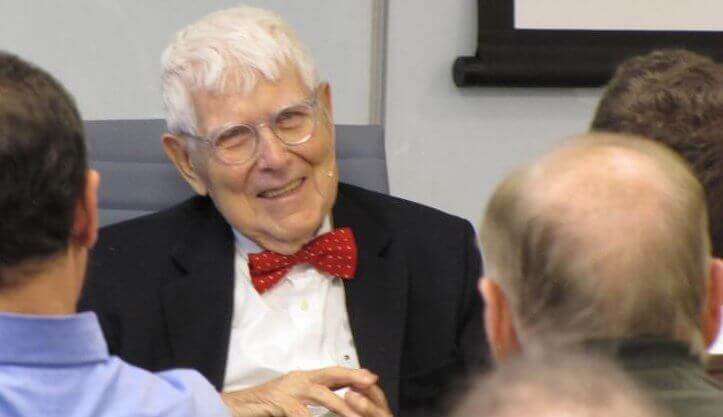The famous cognitive psychologist Aaron Beck, known for revolutionizing the conception of depression and its treatment, has just published an article in Clinical Psychological Science in which he updates his theory entitled?A Unified Model of Depression: Integrating Clinical, Cognitive, Biological, and Evolutionary Perspectives?In this work, he proposes an integrative theory of depression from a clinical, cognitive, biological and evolutionary point of view.
In this new integrative theory, Beck and his colleague Keith Bredemeier, both professors at the University of Pennsylvania in the United States, tried to integrate the results of all these disciplines, clinical, cognitive, biological and evolutionary, to make their model an explanation. more complete and consistent about depression.
- With all this.
- They have established a new framework that explains the symptoms and natural evolution of depression.
- But mainly highlights people’s natural predisposition to healing.
- In this article I will try to explain what this new integrative theory of depression is and its implications.
This integrative theory is based on the premise that depression represents an adaptation to the perception of a loss of essential human resources, which provide access to the basic needs of the individual’s life.
Does this mean that the loss of a family member, partner or friend increases the risk of depression, especially in people who have other risk factors to develop the disease, so this loss, for these people, is more likely to be considered a devastating and insurmountable loss.
After this loss, high physiological reactivity and cognitive tendencies lead these individuals, usually at risk of depression, to activate negative beliefs about themselves, the world and the future, that is, what is classically called?Negative cognitive triad ?.
These beliefs trigger emotions such as sadness, anhedonia, and guilt; all are characteristics of depression, as are physiological and behavioral responses that include withdrawal and inactivity.
This inactivity triggered by loss makes sense: it occurs because the individual tries to conserve his energy in the face of the perception of the loss of resources he suffers, that is, it makes sense the lack of inactivity in the context of depression, rather than saving energy, for fear that other needs will be threatened.
Over time, what they called the “depression program,” which is energy saving, reinforces negative beliefs. It is the subject himself who isolates himself, multiplying the losses and reducing the amount of daily reinforcements.
It is important to note that this program can be interrupted when vital resources are recovered, either due to the appearance of new information that “corrects” negative trends, or because the situation itself is changing. External factors such as the support of friends and family, the advice of a psychotherapist, and biological treatment (for example, antidepressants) can help break the cycle of depression.
However, at the end of their article, Aaron Beck and Bredemeier say that they hope this model will be used to motivate the development of a new (and more inclusive) approach to the treatment or prevention of depression, so that future publications They can expand their integrative theory with new discoveries.
If you don’t know Aaron Beck’s cognitive theory for depression, you may have overlooked the differences between the two theories to explain depression, but you can distinguish by at least two clear aspects that make the difference between the two.
The first aspect is called the “depression program”, which recognizes the evolutionary purpose of inactivity and the isolation of depressive subjects as a means of energy conservation. This conservative policy is the result of feeling immersed in a world of emotional loss, thus adapting to the new situation.
This breakthrough provides a new explanation for the high effectiveness of different cognitive behavioral treatments for depression, particularly those based on behavioral activation as an essential component of therapy, as this would end this program of inactivity caused by depression; these are the most effective therapies.
The second advance presented by this theory concerns the inclusion of biological elements as participants in depression. We talk about the physiological responses produced by the experience of loss in these people, thus explaining the functioning of the antidepressant drug as an effective treatment for depression.
Author’s Note: I didn’t find any reference in Portuguese for this article, so translating various terms like the?Depression program? It could change depending on the different versions.

